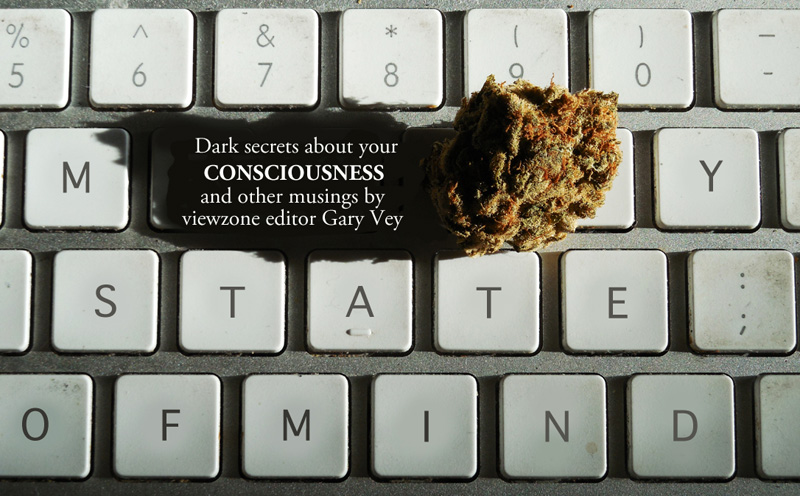
-- Buddha, Dp. 188
The Teachings of Jesus
Buddha found a solution for the problem of consciousness without the need of a god. He described the belief in a god or gods to be a human invention as a response to our fears and disappointments in life. Although there is some suggestion that Buddha himself believed in a god, his teachings purposely are designed to work without it.
This approach, although effective in Asia, would never work with the followers of Yahweh in Palestine or the rest of the Roman Empire. Rome was awash in gods and the culture tolerated only sanctioned deities, like Mithras.
The teachings that Jesus introduced were, in this way, quite different than Buddha. Jesus simplified the concept held in the "8 Paths" of righteous behavior and thinking by acknowledging something positive that arises from consciousness -- love.
"Teacher, which is the greatest commandment in the Law?"Jesus replied: "'Love the Lord your God with all your heart and with all your soul and with all your mind.' This is the first and greatest commandment. And the second is like it: 'Love your neighbor as yourself.' All the Law and the Prophets hang on these two commandments."
-- Matthew 22
The bicameral voice once guided evolving humans to their present state. I think it is fair to say that it also appears to have done the same for the plants and animals. In some abstract way, I think that plants and animals also have their own "voice" that directs their growth and balance with their environment. We like to call it simply "nature". And perhaps that would also include the bicameral voice. What kind of force is this that seems to be benevolent, wise and righteous? Can we give it a name? Is it personal or just a natural, automatic phenomenon?
 Jesus confronted these questions, unanswered by Buddha, by taking advantage of conscious man's ability to be personal and to have personal relationships. By sharing their inner world, conscious people could obtain intimacy and feel love. In love, the self becomes less important.
Jesus confronted these questions, unanswered by Buddha, by taking advantage of conscious man's ability to be personal and to have personal relationships. By sharing their inner world, conscious people could obtain intimacy and feel love. In love, the self becomes less important.
Jesus introduced the concept of a god that was motivated by love for his creation. He did away with the cruel, racist god of Yahweh. He encouraged ordinary people to imagine their god as a "Father" and to cultivate the same kind of love as a child feels for his own parent. And to feel this same love from the Father. (Remember that families were closer back in these times)
In this regard, the subjective self was retained but modified to include love and compassion as a prime motivator.
Jesus taught that there was something inside of us which was linked to the Father. Because of this he taught that all men were equal; we are brothers. As such, our conduct should always be evaluated for its motive and consequences -- very similar to the Buddha's 8-Paths of conduct and the very description of righteousness.
The Kingdom
Jesus also spoke frequently about the Kingdom of Heaven. It was the Father's kingdom. He deflected worship and obedience to the Father as a means for being a part of this "kingdom". But what exactly was the kingdom?
Jesus came preaching that the Kingdom was "at hand" (Mark 1:15), suggesting that it was not something requiring death in order to achieve. It was available here and now. He also said that the kingdom was within all men. It was universal.
"Now having been questioned by the Pharisees as to when the kingdom of God was coming, He answered them and said, "The kingdom of God is not coming with signs to be observed; nor will they say, 'Look, here it is!' or, 'There it is!' For behold, the kingdom of God is in your midst."
-- Luke 17:21
His famous sermon about the kingdom makes the analogy of a farmer sowing seeds. The various environments which the seed finds itself correspond to the mental conflicts which must be overcome to become part of the natural order of the Father. That, in itself, is to be in the Father's kingdom.
"...some seeds fell by the way side, and the fowls came and devoured them up. Some fell upon stony places, where they had not much earth: and forthwith they sprung up, because they had no deepness of earth. And when the sun was up, they were scorched; and because they had no root, they withered away. And some fell among thorns; and the thorns sprung up, and choked them. But other fell into good ground, and brought forth fruit, some an hundredfold, some sixtyfold, some thirtyfold.
-- Matthew 13
 What is being described here [above] is the unconscious phenomenon where we are the kind of person that results from the junk we have allowed to collect in our mind. Selfish ideas and things like greed and lust inhibit the mind and impede its understanding or acceptance of the truth. But a good mind will take the same truth and create the kingdom from it. In Hindu and Buddhism, this is the concept of karma.
What is being described here [above] is the unconscious phenomenon where we are the kind of person that results from the junk we have allowed to collect in our mind. Selfish ideas and things like greed and lust inhibit the mind and impede its understanding or acceptance of the truth. But a good mind will take the same truth and create the kingdom from it. In Hindu and Buddhism, this is the concept of karma.
Reincarnation was also an accepted belief in Judaism. It's mentioned in numerous places throughout the classical texts of Jewish mysticism, starting with the preeminent sourcebook of Kabbalah, the Zohar:
"As long as a person is unsuccessful in his purpose in this world, the Holy One, blessed be He, uproots him and replants him over and over again."
-- Zohar I 186b
"All souls are subject to reincarnation; and people do not know the ways of the Holy One, blessed be He! They do not know that they are brought before the tribunal both before they enter into this world and after they leave it; they are ignorant of the many reincarnations and secret works which they have to undergo ..."
-- Zohar II 99b
Paul would later corrupt the idea of the kingdom to make it an actual place, Heaven, where believers would be reborn following this present life and be rewarded with the enjoyments and pleasures of life forever. Conversely, those found deficient or not accepting the kingdom are destined for eternal punishment -- hell.
Instead of enjoying the benefits of Jesus' teachings, Paul-style Christians practiced flagellation, torture and murder from the belief that men were spiritually deficient creatures needing to constantly repent for their sins. As a social tool for increasing the joys of life in the "Father's kingdom", it failed. Yet, in one form or another, it is still the most prevalent form of Christianity today.
It is a shame. I know I will receive nasty comments from people who have appropriated the figure of Paul's Jesus into their beliefs. It was difficult for me to write this because these beliefs can be so strong and engraved in a person's world view that they will become violent when it is opposed.
But hold on. I'm not going to be discouraged by these attempts to corrupt the actual teachings of Jesus. They are good principles and they are the very first solution that acknowledges the source of the old bicameral voice. Jesus personified the voice and cultivated a loving relationship with it through his teachings. Even though we know very little about Jesus, the person, his philosophy and religion of the Father are a step up from Buddha (in my opinion).
Jesus was a great teacher who revealed a way for our consciousness to be tamed by cultivating our most intimate emotion, love. This missing ingredient has had wide appeal but has threatened the other "voice" of the Abraham tribe, who reject the teachings of Jesus in favor of the old bicameral style law and order.
Sadly, the history and facts just do not support the idea that the life, death and teachings of Jesus should be blindly accepted as they are currently known. Only by reading the things attributed directly to Jesus can we understand his solution to the problem of consciousness. His solution to the missing bicameral voice was to start speaking to it in prayer and "feeling" its direction and guidance through our emotions, especially love.
The religion of Jesus is all about the Father and love. Any conflict with the details of his life are moot.
In my humble opinion, if you strip away the Mithras biography, the influence and corruption that Paul introduced, heaven and hell... all of that crap... and listen to the words of Jesus then you have a first rate solution for the problems of consciousness -- self-interest and attachment to the temporary things of life -- with love which diminishes the importance of self in the narrative of reality (consciousness) while, at the same time, opening up an emotional connection to whatever is behind the bicameral voice.
It's the best of both worlds, if you can find it yourself.
Woe is me...
I have to confront Islam and the teachings of Mohammed (PBUH) next. I'll need some courage to do that, especially in today's delicate world. Please send your thoughts. (later)
